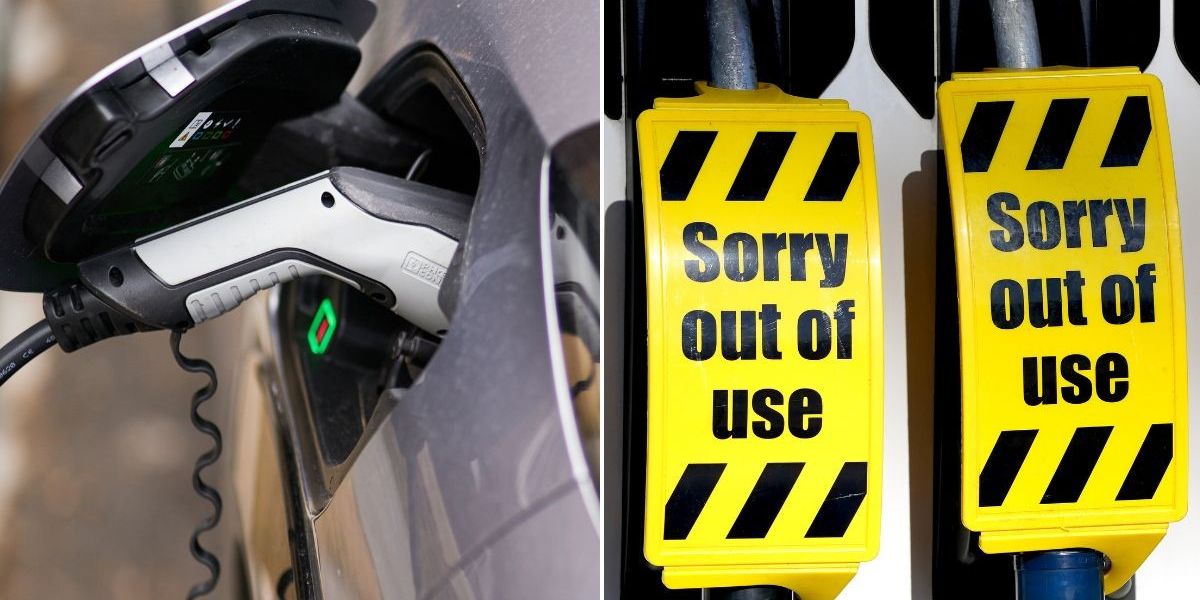Petrol drivers have “no idea” what owning an electric vehicle is like, according to new research, particularly when it comes to charging and battery life.
Data suggests that around four in five owners of petrol vehicles think electric car owners have to use public charging stations at least once a week.
This is despite just 18 per cent of EV drivers reporting having to do so, with three-quarters of drivers using them just once a month or less and instead relying on home charging.
There are currently more than 68,000 electric vehicle charging points across the UK, with an estimated 700,000 devices at homes and workplaces.
Do you have a story you’d like to share? Get in touch by emailingmotoring@gbnews.uk
Many petrol car owners had no idea about EV charging habits
OSPREY CHARGING
Experts are confident that the UK will install 300,000 chargers before the end of the decade in a move to boost confidence in owners of petrol and diesel vehicle owners.
The research, from the Energy and Climate Intelligence Unit (ECIU), also found that 54 per cent of petrol car drivers think EV owners run out of charge at least once a year.
However, more than eight in 10 EV motorists reported that they have never run out of charge, helping to bust the myth of electric vehicles running out of battery often.
Colin Walker, Head of Transport at the ECIU, said: “When it comes to EV ownership, this polling reveals a huge gap between perception and reality.
“It appears many petrol car drivers simply have no idea how their EV counterparts actually charge their vehicles, and assume EV drivers spend a lot more time visiting charge points than is in fact the case.
“They also massively underestimate the proportion of EV drivers who can charge their vehicles at home, which allow them to power their cars for as little as 2p a mile.”
He added that the transition to EVs is “largely going to plan” for those who can charge at home, and with more public chargers being installed, confidence will only continue to grow.
The YouGov poll revealed that 92 per cent of drivers can charge from home, compared to the four per cent of petrol drivers who correctly identified that many can charge from home.
While the cost of motoring has impacted almost all drivers, ECIU data shows that petrol car owners are paying a £700 “petrol premium” because of fuel costs compared to charging.
This could be exacerbated in the near future as the Government considers raising the rate of fuel duty to claw back money following a £22billion black hole left by the previous Conservative administration.
AutoTrader market listings also show how prices are falling with many second-hand electric vehicles having a similar price to those for petrol equivalents.
Walker added: “The previous Government’s Zero Emissions Vehicle mandate policy is working with competition between manufacturers driving down the upfront cost of new EVs and driving up sales.
LATEST DEVELOPMENTS:
Experts have praised the development of the ZEV mandate
PA
“But crucially it will also build up a pool of second-hand EVs, helping ordinary families buying a used car, as most people do, to make the switch to cheaper motoring, avoiding the ‘petrol premium’.”
The Zero Emission Vehicle mandate outlines how manufacturers are required to have 22 per cent of total sales come from electric vehicles before the end of the year.
These targets will continue to increase over the next decade, reaching 80 per cent by 2030 and 100 per cent by 2035.

